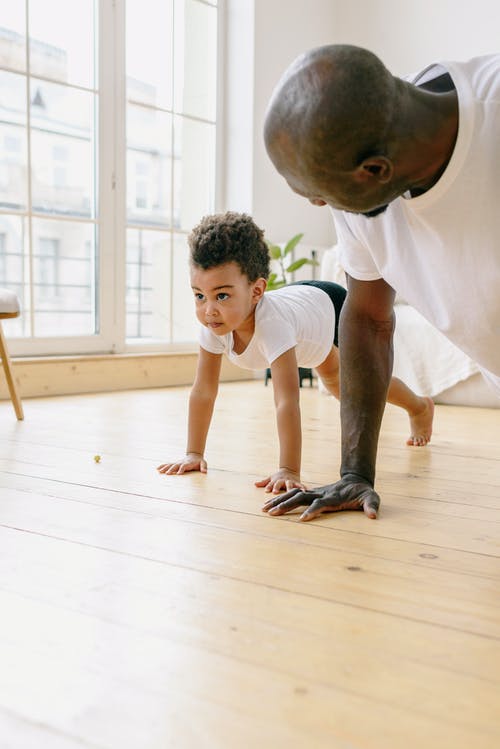Digital Fitness Tracker For Kids: Advantages & Disadvantages
What are the pros and cons of buying a fitness tracker for your child? This is an especially pertinent question when parents more than ever are using the devices to measure whether or not their kids are getting enough exercise, with fitness for kids in India becoming a more mainstream facet of a child’s daily routine in recent years. There’s no denying that fitness trackers can help you track your child’s activity level to be sure they’re getting the exercise they need for a healthier future. However, there are also downsides to buying one of these devices for your child.
We’re highlighting some of the advantages and disadvantages of buying a fitness tracker for your child.
5 Advantages of Giving Your Child a Fitness Tracker:
1. Track Your Child’s Activity Level
Fitness trackers can help you measure whether or not your child is getting adequate exercise. Although specialized sports classes for children in India are catching on fast, most parents assume that their children get enough exercise in school during recess, which is not always the case.
Fitness trackers can track your child’s activity level in the form of steps taken and time spent active. You can easily tell how active your child is by looking at the recorded data via a smartphone app.

2. Motivate Your Child To Exercise
A fitness tracker can also help motivate your child to exercise as the data serves as a potent reward system. With a fitness tracker, your child gets real-time data on their activity level, which can serve as extra motivation to exercise.
Children’s fitness trackers work in a way like mobile apps that reward walking habits.

3. Track The Amount Of Sleep Your Child Is Getting
Children’s fitness trackers also come in handy when you want to know whether your kid is getting adequate sleep or not. Fitness trackers like the Fitbit Ace can help you track the amount of sleep your child is getting.

4. Customize Metrics Your Way
Another great thing about buying a fitness tracker for your child is that you don’t have to worry about them being exposed to data that may affect their self-esteem. Your child will not be exposed to sensitive data like the amount of calorie intake, body weight, and BMI. That’s because you can customize what information they see on the activity tracker.

5. Encourage Children To Be Health Conscious
Buying fitness trackers for your child can also help them grow with a positive focus on health that will help them later on in life. It trains them to understand that they’re responsible for their physical and mental well-being

4 Disadvantages Of Giving Your Child A Fitness Tracker:
1. Your Child Might View Exercise As A Chore
A con of buying a fitness tracker for your kid is that it can take the fun out of physical activities. With the growing focus on fitness for kids in India, it may be easy to track your child’s fitness levels by simply looking at the metrics displayed on the device, but there is also a tendency for your child to see the numbers as the goal rather than focusing on their physical and mental health. Fitness trackers can also discourage your child from participating in other healthy exercises like climbing, spinning, rolling, and throwing that do not increase their daily step count.
It may also discourage them from exercising when they don’t have their tracker on, as they may feel they won’t receive credit for their efforts.

2. The Technology Might be Addictive
Fitness trackers, like all devices, could be potentially addictive for your child. While most fitness trackers have basic designs that reduce the addiction potential, a fitness tracker is still an extra device for your kid to focus on, use, and want every day.

3. Data Is Not Always Accurate
Fitness trackers do a great job at tracking your child’s activity level. However, to be effective, its recorded data has to reflect real-world performance. Findings from a study published in 2017 by the Institute of Electrical and Electronics Engineers show that metrics such as step count vary as much as 26% across trackers. Other metrics such as heart rate monitoring and the number of calories burned are also subjective. This is especially important if you’re looking to use your child’s fitness activity data to determine their other health behaviours like nutritional choices. For these reasons, it’s best not to base sensitive decisions solely on the data recorded by a fitness tracker.

4. Fitness Trackers May Cause Anxiety In Some Kids
Fitness trackers have also been found to cause anxiety and worry in some children. The fixation on numbers can cause your child to panic if they fail to meet their goals, adversely affecting their mental well-being.

Weighing In On The Pros And Cons
Buying a fitness tracker for your child can be a good thing or a bad thing. What matters most is whether or not its use is controlled. Fitness trackers can help motivate your child to develop an active fitness routine and healthy habits that can become almost natural with time. When the habit becomes natural, they can stop using the tracker to help minimize the risks.

upUgo’s fitness programs for children in India are specially designed by expert sports coaches to help kids train and reach their highest potential, soaring to new heights of health and happiness.

